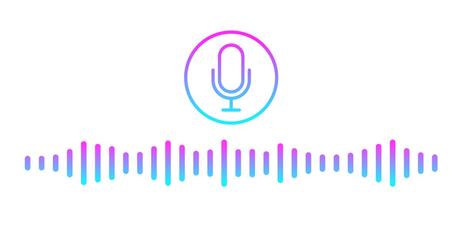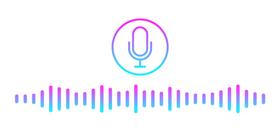Audio-visual materials have enhanced teaching since the beginning of the last century. As a student in Montreal in the 50s and 60s, I remember what a treat it was to listen to a recording or radio broadcast. Those aids were a welcome change from our very formal, British-style lessons taught by teachers who lectured and expected you to memorize reams of tables and facts. Here's a chronology of when the various devices were introduced into classrooms.
Audio-visual aids such as recordings and film projectors have been used in K-12 classrooms for decades. Here's a brief history of their use:
- Phonographs: In the early 1900s, phonographs were used in classrooms to play recordings of music and speeches.
- Film projectors: In the 1920s, film projectors became available and were used to show educational films in classrooms.
- 16mm films: In the 1930s, 16mm films became the standard format for educational films, and schools began building libraries of educational films.
- 35mm filmstrips: In the 1940s, 35mm filmstrips were introduced, a series of images printed on a long strip of film accompanied by an audio recording.
- Slide projectors: In the 1950s, slide projectors became popular in classrooms, allowing teachers to display images and information on a screen.
- Overhead projectors: In the 1960s, overhead projectors became widely used in classrooms, allowing teachers to display written and visual material on a screen in real time.
- Video cassette recorders: In the 1970s, video cassette recorders (VCRs) were introduced, allowing teachers to show pre-recorded videos in the classroom.
- Digital media: In the 1990s, digital media became available, including CD-ROMs, DVDs, and digital projectors, offering improved audio and visual quality.
Source: ChatGPT
Today, audio-visual aids are an essential part of K-12 education, with digital technology offering more interactive and engaging ways for students to learn. Source: ChatGPT
Podcasts have been around since the 2000s. They are easily accessible via a podcast platform on your smartphone. Most podcasts don't cost anything and feature presenters who know their subject. Like every other material, you need to review podcasts before you use them in your classroom or share them with your children. I recommend them as a worthwhile alternative to endless hours of watching videos. Podcasts show the length, so you know how much time to allot for listening.
Podcasts for the classroom and home
Here are some podcasts you might find useful in your classroom or for enrichment at home.
Here are ten educational podcasts that are appropriate for K-12 students:
- Wow in the World - A podcast from NPR that explores the wonders of science, technology, and innovation.
- But Why: A Podcast for Curious Kids - This podcast answers kids' questions about the world around them, with topics ranging from science and nature to culture and history.
- Story Pirates - A podcast that features stories written by kids, performed by professional actors, and sometimes even turned into songs.
- Tumble Science Podcast for Kids - This podcast explores the world of science through stories and interviews with scientists.
- Brains On! - Another science podcast for kids that explores topics such as the human body, the environment, and space.
- Grammar Girl Quick and Dirty Tips for Better Writing - A podcast focusing on grammar, punctuation, and other writing tips.
- Stuff You Missed in History Class - A podcast that explores fascinating and lesser-known stories from history.
- Smash Boom Best - A podcast featuring debates between two ideas or things, with kids voting on which is the "best."
- Science Friday - A weekly radio program covering a wide range of science-related topics, from the latest research to discoveries.
- The Past and The Curious - A podcast that explores history through storytelling and music, focusing on lesser-known events and figures.
Source: ChatGPT
In this video, Michael MacGuiness talks about teaching with podcasts.
Occasionally, I watch a couple of videos showing how robots build cars. It's fascinating, exciting technology worth introducing to your students.
Here are some educational podcasts about robotics that are appropriate for K-12 students:
- Robotics Through Science Fiction - A podcast that explores how robots are portrayed in science fiction and how those depictions relate to real-world robotics.
- STEM-Talk - Robotics - This podcast features interviews with science, technology, engineering, and mathematics experts, including episodes, explicitly focused on robotics.
- STEM Read - Robotics - A podcast that explores the intersection of science, technology, engineering, and mathematics with literature, including episodes focused on robotics.
- The Robot Brains Podcast - A podcast that explores the science of robotics, including discussions of AI, machine learning, and other topics.
- IEEE Robotics and Automation Magazine - A podcast that features discussions of robotics research, development, and innovation.
- RoboPsych Podcast - A podcast that explores the intersection of robotics and psychology, with discussions of topics such as robot ethics and human-robot interaction.
- Talking Machines - A podcast that explores the world of machine learning, AI, and robotics, with interviews with experts and discussions of cutting-edge research.
- The Robot Report - A podcast that features news and analysis of the robotics industry, including interviews with industry leaders and updates on the latest developments in robotics technology.
Source: ChatGPT
This video from the Engage Kids Online Learning Platform talks about teaching robotics.
I'm scratching the surface with this sampling of podcasts. There are over 2 million podcasts available on all the platforms. Please let us know on Facebook which podcasts work best in your situation as a teacher or parent. For encouragement, read It's Time for Academe to Take Podcasting Seriously and Why You Should Bring Podcasts Into Your Classroom.
Questions? Contact us on Facebook. @privateschoolreview



















